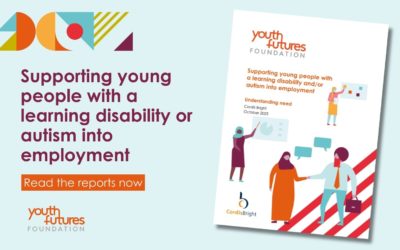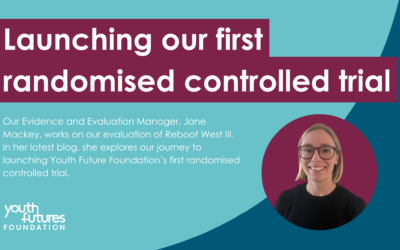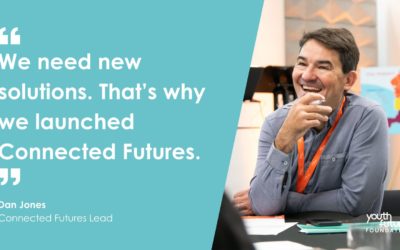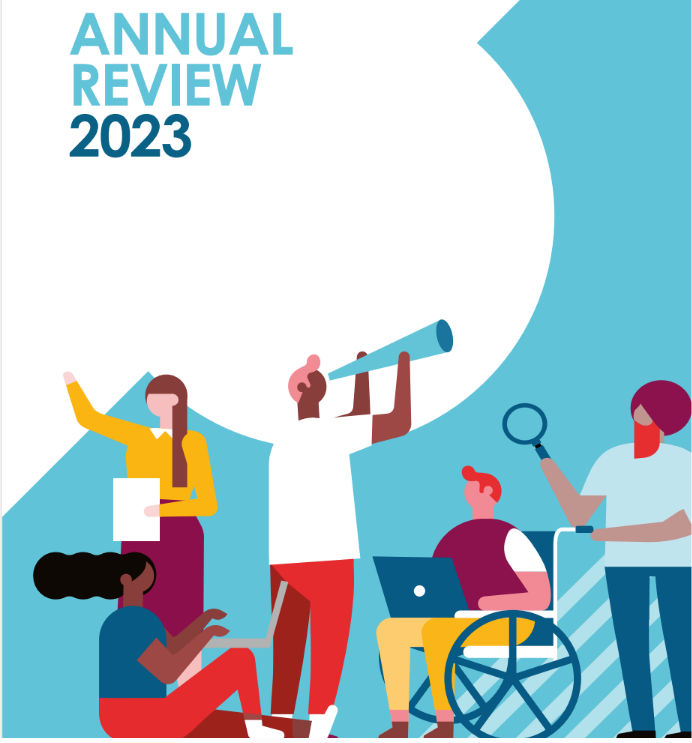As the national What Works Centre for youth employment, our vision is an equitable future society where all young people have the opportunity to be in good work.
With a specific focus on marginalised young people, we help build understanding of ‘what works’ for youth employment and apply those insights in practice.
By finding, generating and sharing high-quality evidence, we support policymakers to maximise the impact of investments and decisions made at the national, regional and local level, creating real change.
Learn more about us or get in touch with our policy team for more information.

Discover how we’re generating high-quality evidence and putting it into action to drive system change for youth employment.
The challenge
The proportion of young people not in education, employment or training (or ‘NEET’) is increasing across the UK. While it’s remained stubbornly high for two decades, it has grown by a quarter since 2021 with 900,000 – or 1 in 8 – young people currently NEET.
This is a persistent challenge that is known to particularly affect young people facing additional barriers to employment such as young people living with a disability, from ethnic minority groups, with experience of a mental health condition, or experience of the care or criminal justice systems.
Explore our 2023 report Risk factors for being NEET among young people for more information.
Find out more about Building Futures our programme to develop and test a package of targeted support for young people aged 14-16 at risk of becoming NEET and build evidence of what works to address these barriers.
What the evidence says
So far, existing research indicates that apprenticeships could have a high positive impact on youth employment outcomes. On average, for every 10 young people who take part in an apprenticeship, one will get a job who wouldn’t have done so without the targeted support.
Similarly, on-the-job training – such as supported internships, traineeships and vocational training – could have a positive impact on youth employment outcomes. On average, for every two young people facing additional barriers, one will get a job who wouldn’t have done so without the intervention.
Key reports
Risk factors for becoming NEET
Exploring the extent and degree of overlap between different forms of marginalisation among young people in England, and labour market exclusion.
Discrimination and work
Findings from the largest known survey on experiences of discrimination among ethnically
minoritised young people in Britain to date.
Annual Review 2023
Reflecting on our activity across 2023
Young Person’s Guarantee
Proposed by the Youth Employment Group, a national coalition of experts, the Young Person’s Guarantee is a commitment that all young people under 25 will receive support to access employment, training, or education within four months of leaving employment or formal education.
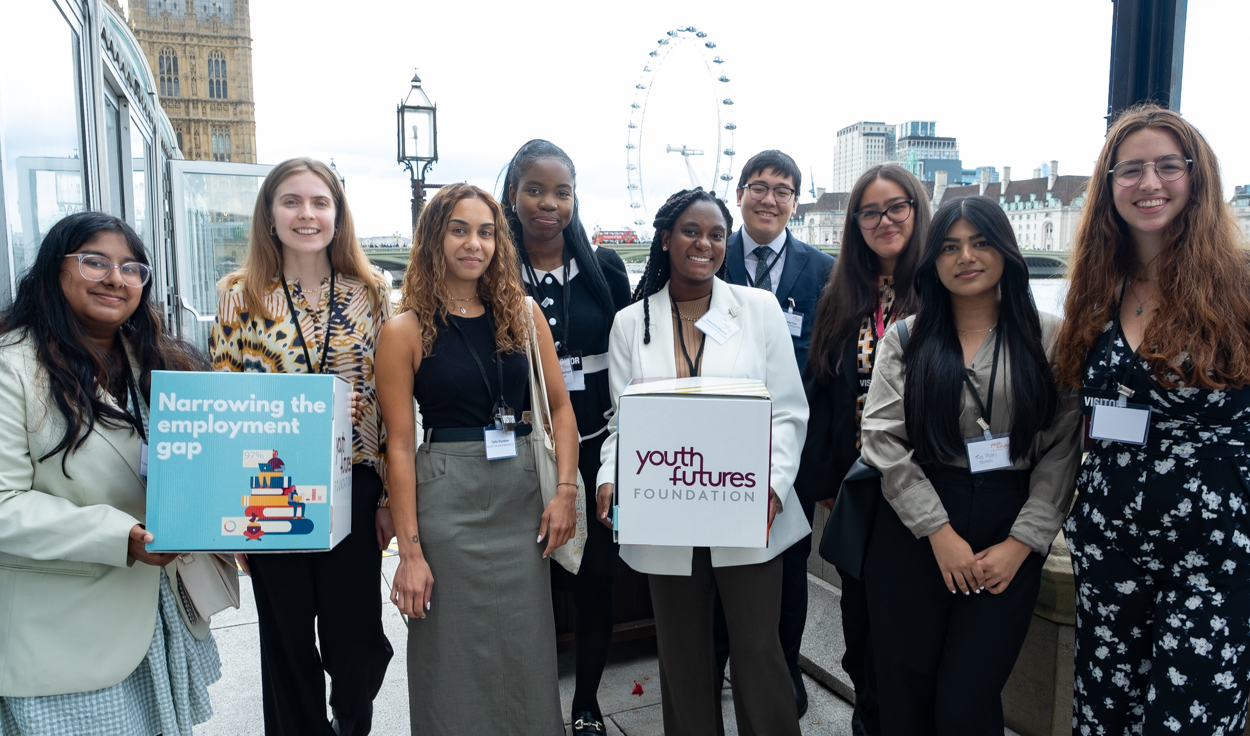
“The high number of young people who are not in education, employment and training, is a huge waste of talent and potential. If addressed, could contribute massively to higher economic growth.
“To tackle this challenge requires ambition, reform and investment which the Young Person’s Guarantee, if implemented ,would deliver and ensure that we can be a leader in providing better opportunities for young people across the country.”
Barry Fletcher, CEO
Useful resources
Our free and interactive online tools are designed to help policymakers access and make use of the latest youth employment data and research.
Youth Employment Toolkit
Summarising current evidence on the impact, cost and effectiveness of common interventions that are used to help young people get into work.
Data Dashboard
Collating official statistics on the labour market, NEET rates, consumer prices index and vacancies to provide up-to-date national and localised information and data visualisations.
Youth participation
Throughout our work, we proudly involve the voices, perspectives and participation of young people experiencing marginalisation, through our Future Voices Group, our young Board members and beyond.
Latest
Supporting young people with a learning disability or autism into employment
Exploring the current landscape of employment support in England, promising interventions and key areas for improvements.
Our CEO, Barry Fletcher, responds to the Spring Budget
Three evidence-based recommendations for Government to help tackle the youth employment challenge and support all young people
Supported internships are revolutionising inclusion in the workplace, but we need more
When it comes to helping young people with a learning disability or autism spectrum condition into good jobs, we believe supported internships are a key part of the solution.
Launching our first randomised controlled trial
Celebrating the launch of ‘Reboot West 3’, Youth Futures Foundation’s first randomised controlled trial.
Connected Futures: A different approach to funding
Connected Futures Lead, Dan Jones, explains our approach to place-based funding.




